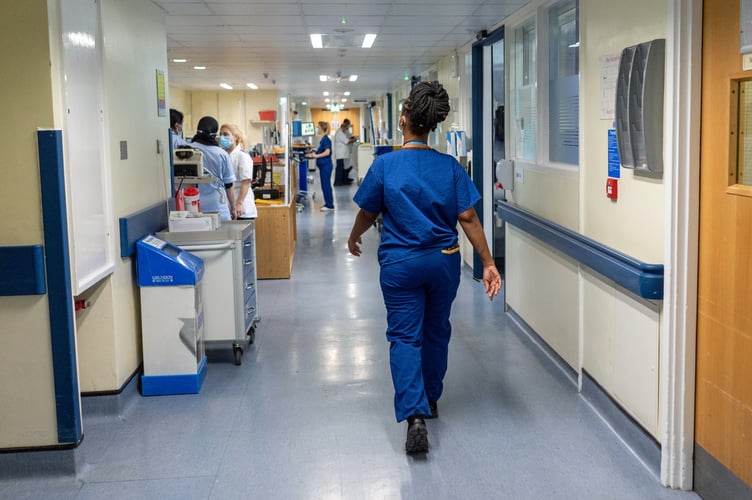Staff at Cornwall Partnership Trust experienced hundreds of sexual harassment incidents last year, new survey figures suggest.
For the first time ever, the NHS Staff Survey – an annual poll of all NHS staff, with more than 600,000 responses – asked workers if they had been the target of unwanted sexual behaviour in the previous 12 months, which includes inappropriate language, sexual jokes or assault.
The survey showed 9.9% of 2,011 respondents at Cornwall Partnership NHS Foundation Trust said they experienced at least one incident of unwanted sexual behaviour by a member of the public in 2023.
Meanwhile, a further 3.4% of 1,998 staff said a fellow colleague or other staff had behaved in an undesired sexual manner towards them on at least one occasion.
It means there were at least 266 incidents of sexual harassment towards staff at Cornwall Partnership Trust last year.
Across England, 8.7% of staff said they experienced unwanted sexual behaviour from a member of the public, while this fell to 3.8% for fellow staff members.
Professor Vivien Lees, vice president of the Royal College of Surgeons of England, said gathering data on sexual harassment "is an important step as it gives us a better picture of the scale of the problem".
NHS England launched its sexual safety charter in September, which commits to enforcing a zero-tolerance approach to any unwanted sexual behaviours in the workplace.
Professor Lees added: "It is essential staff members feel empowered to report instances of misconduct without fear of reprisal or negative impact on their career progression."
Dr Emma Runswick, deputy chair of the British Medical Association council, said the survey portrays a "distressingly grim reality of healthcare professionals' experiences".
Dr Runswick praised the inclusion of unwanted sexual behaviour stats for the first time, but added the figures are "deeply troubling and utterly unacceptable, underscoring the urgent need to incorporate third-party harassment into any measures aimed at safeguarding staff from sexual harassment".
The figures showed ambulance staff experienced the highest rate of sexual harassment from both the public and other staff members last year.
Dr Navina Evans, chief workforce, training and education officer at NHS England, said: "It is very distressing that more than 58,000 NHS staff reported experiencing unwanted sexual behaviour from the public last year and such conduct should not be tolerated in the NHS.
"That is why the NHS launched its first ever sexual safety charter last year which provides clear commitments to improve reporting on unacceptable behaviour, as well as appointing more than 300 domestic abuse and sexual violence leads who will review and improve trust policies for reporting of sexual harassment."
The survey also revealed higher rates of bullying and discrimination against ethnic minorities than white staff, with 28.6% reporting suffering harassment, abuse or bullying from the public, compared to 24.7% of white people.
It suggests an ethnic minority member of staff is 16% more likely to experience bullying from a member of the public than a white staff member.
At Cornwall Partnership Trust, 37.3% of ethnic minorities reported suffering harassment from a patient – 41% more than their white colleagues.




